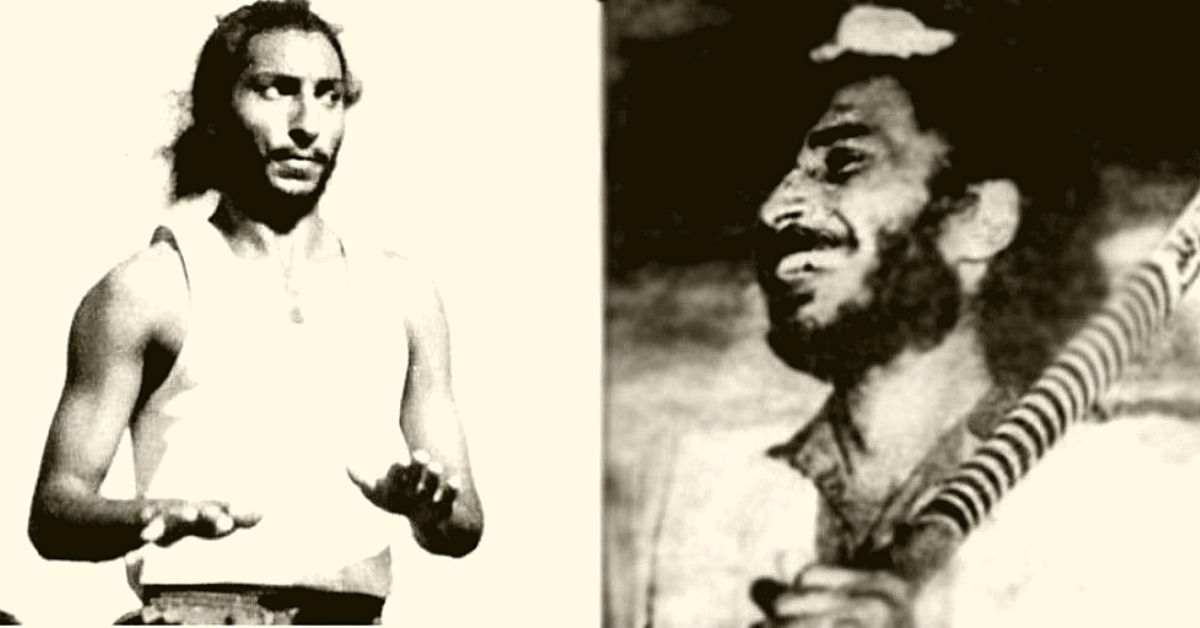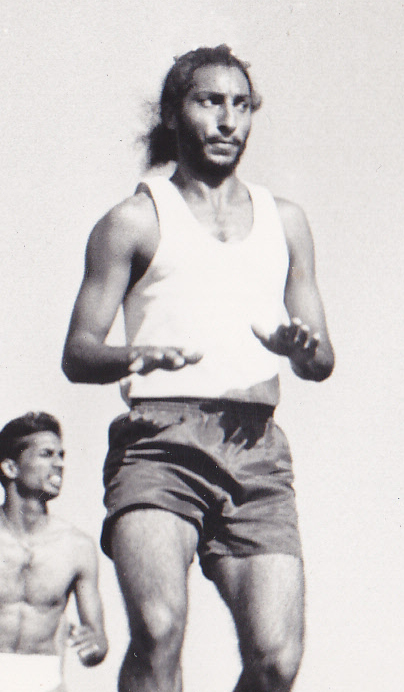This Legend Was Once Known as The ‘World’s Most Feared Penalty Corner Specialist’
"All played brilliant hockey, but as always some were superb: Prithipal Singh, who scored 11 of India's 22 goals in the tournament will be remembered particularly for he was like the Rock of Gibraltar," said legendary radio commentator Melville De Mellow, when describing the Indian team's performance in the 1964 Tokyo Olympics.

If Indian hockey legend Prithipal Singh were a cricketer, who scored the highest number of runs in the 1983 World Cup, we would most certainly know all about him today. His name would be revered alongside the likes of Kapil Dev and Sunil Gavaskar.
Instead, the man, who was once touted as the ‘world’s most feared penalty corner specialist’ and the ‘King of short corner’ and scored 11 of the 22 goals for India enroute to the gold medal in the 1964 Tokyo Olympics, remains largely forgotten in the mindspace of the modern Indian sports fan. Among the greatest hockey players this nation has produced leading India to a medal in three successive Olympics, Prithipal was gunned down in broad daylight by his own students at a university campus during the heights of militancy in Punjab.
Prithipal was born on January 28, 1932, in Nankana Sahib city in the present day Pakistan. His father, Sardar Wadhawa Singh Chandi, was both a school teacher and a farmer. The turning point in Prithipal’s life was the bloody Partition, which forced him and his family to cross the border into Punjab, India. It was an event that left an indelible mark on his psyche.
“Prithipal was very principled, righteous and was a man of strong convictions. Having been brought up during the partition, he carried a massive baggage coming from Pakistan at age 15. His obsession to beat Pakistan in the finals was like getting what he lost in Pakistan back then,” says Sandeep Mishra, the executive producer and scriptwriter of the movie based on his life released in 2015, in an interview with The Pioneer.
Continuing his studies in India, Prithipal went onto complete his MSc degree from the now renamed Punjab Agriculture College in Ludhiana. Excelling in both academics and sports, he received the ‘Roll of Honours’ from his college.
From 1950 to 1956, he played for his college team, and even led as captain during his final year. After obtaining his degree in 1956, he joined the Punjab Police as an Inspector and began playing for their famed team. Two years later, he was picked for the national hockey team which went on tour to various countries in Africa and Europe.
His immense talent with the stick was evident from the start marked by sharp reflexes and sensational power generated from his long muscular arms. During one tournament held in Munich in 1959, he was adjudged the world’s best full back.
Following a string of consistent performances, he was selected for the 1960 Rome Olympics, where he memorably scored two hat tricks against Denmark and the Netherlands. Top scorer and adjudged the best full back in the tournament, Prithipal led India to a silver medal.
Disappointingly, the team lost to Pakistan in the final.
In the following year, he was given the Arjuna Award, the first hockey player to ever receive this honour from India’s first President Rajendra Prasad.
His performances on the field were consistent leading him to clinch a silver medal for India in the 1962 Asian Games in Indonesia. In 1963, he resigned from the Punjab Police, and joined the Indian Railway Police and began playing for their team. As a consequence of venal politics in the Indian Hockey Federation’s selection committee, he was left out of the side the following year. This resulted in a massive uproar among members of the national press who asked, “Has Prithipal become so bad (unwanted player) after resigning from the Punjab Police?”

Despite all the controversy, he continued winning tournaments for the Indian Railway Police, and the selectors had no choice but to pick him for the 1964 Olympics in Tokyo, his shining moment. At last, Prithipal had his revenge, helping India beat Pakistan in the finals.
“All played brilliant hockey, but as always some were superb: Prithipal Singh, who scored 11 of India’s 22 goals in the tournament will be remembered particularly for he was like the Rock of Gibraltar,” said the legendary radio commentator Melville De Mellow, when describing the Indian team’s performance in Tokyo.

Two years later, he was part of the Indian team that won the gold medal in the Bangkok Asian Games. Although he was made captain of the team the following year, a rift had begun to grow between him and renowned hockey administrator Ashwini Kumar.
Some commentators from the time believe Kumar wanted him dropped from the side altogether after the 1964 Olympics, but there was no one good enough to replace him.
Unable to get a promotion in the Indian Railway Police, Prithipal quit and joined the Northern Railways in 1968. In the Olympics in Mexico City that year, however, more controversy was to follow. The selectors had chosen two captains – Prithipal and Gurbux Singh – to lead the side, which remains unheard of even in today’s game.
With Gurbux seen as the selectors choice, differences began creeping into the team with allegations against Prithipal for creating a ‘negative environment’ in the dressing room.
Despite their troubles, the team finished with the bronze medal. Unhappy with the allegations made against him and disappointment over finishing third in the 1968 Olympics, Prithipal retired from the sport.
He subsequently joined his alma mater, the Punjab Agricultural University, serving in various capacities as director of sports and dean of students’ welfare.
On May 20, 1983, however, tragedy struck when students from his own university gunned him down in broad daylight. Some believe he was caught in the crossfire between rival student union groups, while others believe his strict disciplinarian methods had brought him to course collision with members of the local students union. Moreover, such murders weren’t uncommon in the university with six people already getting killed on campus as a result of student union clashes.
Also Read: Losing Her Dad & Coach Couldn’t Stop Her From Winning India’s First Gold at Asian Athletics C’ships!
“Strict disciplinarian methods and his crusade to clean the campus of toughs and trouble-makers brought him inevitably into a head-on clash with the PSU elements,” said this Indian Today report.
The murder had rocked the state and the international hockey community. Unfortunately, years after his death, the murder case remains unsolved. By October 2015, his name had virtually disappeared from the public imagination till a feature film recollecting his life was released.
Despite the controversies surrounding his life, Prithipal is a hockey legend India must not ever forget. For years, he carried the mantle of the best player in the world in his position, leading the country to many moments of glory. It’s only fair that sports fans in India treat him with the same reverence that the likes of Kapil Dev and Sunil Gavaskar receive.
(Edited by Saiqua Sultan)
Like this story? Or have something to share? Write to us: [email protected], or connect with us on Facebook and Twitter.
If you found our stories insightful, informative, or even just enjoyable, we invite you to consider making a voluntary payment to support the work we do at The Better India. Your contribution helps us continue producing quality content that educates, inspires, and drives positive change.
Choose one of the payment options below for your contribution-
By paying for the stories you value, you directly contribute to sustaining our efforts focused on making a difference in the world. Together, let’s ensure that impactful stories continue to be told and shared, enriching lives and communities alike.
Thank you for your support. Here are some frequently asked questions you might find helpful to know why you are contributing?


This story made me
-
97
-
121
-
89
-
167











